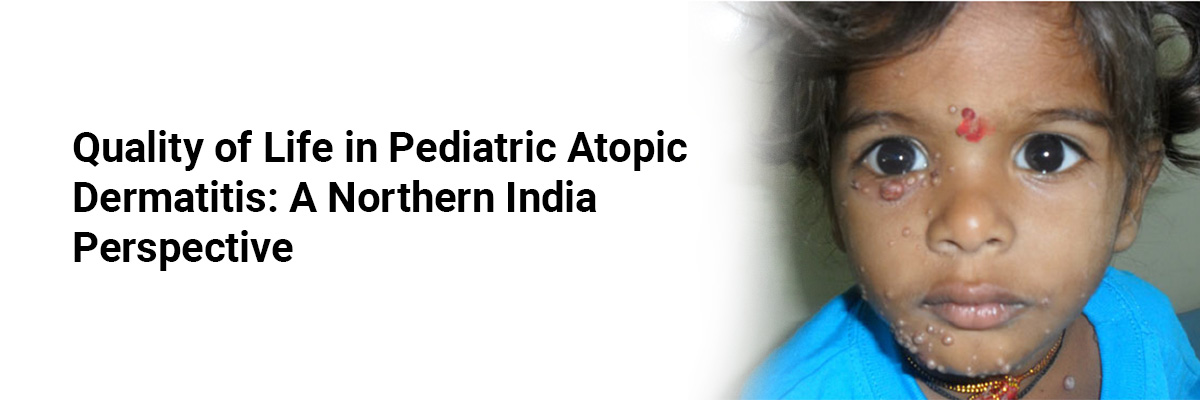
Quality of Life in Pediatric Atopic Dermatitis: A Northern India Perspective
Atopic dermatitis (AD) is a prevalent chronic skin condition, especially in children, where its onset often occurs early: 60% of cases emerge in infancy, and up to 85% of children experience symptoms by age five. AD results from a blend of genetic predispositions and environmental factors, with allergens, infections, and irritants acting as exacerbating triggers. Clinically diagnosed using Hanifin and Rajka criteria, AD severity is quantified by the SCORAD index, a tool that measures symptoms and signs of the disease.
Key Findings of the Study
This study examines the impact of AD on quality of life (QOL) among children and their families. Notably, the study found that higher disease severity is associated with greater QOL impairment, particularly affecting physical comfort, psychological well-being, and social interaction. Key symptoms like itching and sleep disturbances were among the most severely impactful, with itching causing heightened distress in younger children. As a result, the study underscores the importance of symptom-focused treatment to alleviate the burden of AD alongside specific interventions.
The impact extends to families, where parents face financial strain, emotional stress, and physical exhaustion from caring for a chronically ill child. Increased expenditure and constant caregiving can significantly affect family dynamics and overall well-being. Consequently, the study advocates for tailored treatments and targeted counseling for children at various developmental stages. For families, it emphasizes the need for guidance on symptom management and timely intervention.
Implications for Clinical Practice
This study highlights a need for holistic AD management that addresses both patient and family needs. Practitioners are encouraged to:
Provide age-specific treatments that consider developmental needs.
Emphasize symptom management, especially for itching and sleep issues.
Offer family-centered care plans, addressing emotional and financial concerns.
Educate parents on recognizing symptoms warranting prompt medical attention to improve outcomes for the child and relieve caregiver burden.
This study serves as a call for further research in India to better understand the multidimensional impact of AD and to improve supportive care strategies for affected families.














Please login to comment on this article